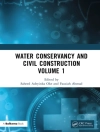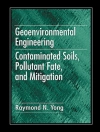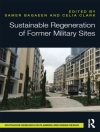This book takes a comprehensive and forward-looking approach to urban resilience and climate change preparedness. It combines theoretical insights, practical case studies and innovative strategies to address the complex challenges cities face in an era of rapid urbanisation and changing climate patterns. It presents a fresh and innovative approach to addressing the intertwined challenges of urban resilience and climate change preparedness. What sets this book apart is its emphasis on forward-looking strategies, multidisciplinary insights and a comprehensive exploration of cutting-edge technologies and collaborative approaches. This book is likely to be diverse, encompassing professionals, academics, researchers, policymakers, practitioners, students and individuals interested in the fields of urban planning, environmental science, sustainability, climate change adaptation and related disciplines. The book aims to appeal to both experts in the field and those new to the subject, providing a valuable resource for different audiences.
Jadual kandungan
Integrating urban master planning with environmental impact assessment for sustainable and resilient cities.- City as Urban Ecology: Ecosystems as Climate Regulators and Sources of Resilience.- Building Resilient Urban Futures: Adapting Cities to Climate Change Challenges.- Associating the Determinants of Urban Transformation in Mumbai Suburban District to the Status of Resilience to Climate Change.- Assessing the Role of Urban Form in Ecosystem Service Provisioning as a part of Urban Resilience: A Case Study on Kolkata.- Modelling Urban Growth, Demand-Supply Dynamics, and Climate Resilience: A Study of a Class-I City in Eastern India.- Disaster Resilience in Fiji Through Urban Green Infrastructure: A Review.- The Impact of Green Spaces Characteristics on Enhancing Resilience of Urban Canyons Microclimates.- Leveraging Nature-Based Solutions for Urban Resilience and Climate Adaptation.- Enhancing Urban Resilience with Green Infrastructure: The Impact of Genetic Variability.- Forgotten Urban Waters and Green Areas of Dhaka: Analyzing the Scope of Urban Resilience by Revisiting Historical Maps and Policy Documents.- Policymaking for Urban Climate Resilience in a Multi-Level Government System.- Challenges of Implementing Urban Ecosystem-based Adaptation to Climate Change in Developing Countries: A Systematic Review.- Developing a Climate Resilience Framework for Cities with an Emphasis on Innovative Technology Applications.- Resilience Planning: Metamorphosis of the Zorrot zaurre Peninsula, Bilbao (Spain).- Inspired Applications of Artificial Intelligence in Disaster-Resilient Regional Construction for Climate Risk.
Mengenai Pengarang
Dr. Shovan Ghosh
Dr. Ghosh, Associate Professor, Department of Geography, Diamond Harbour Women’s University, South 24 Pargana, West Bengal, has completed his M.A. and Ph.D. in geography from the University of Burdwan, West Bengal. He served as Assistant Professor for more than ten years at Ramananda Centenary College, Purulia, West Bengal. His area of interests lies in human geography, environmental issues, education and geography, regional planning, backward region development, urban planning. He has almost 50 national and international papers, written seven chapters in different books and had attended 50 national and international conferences and seminars. He was awarded Best Paper Presenter in international conference on ‘Urban development’, organised by Institute for Social Development and Research, Ranchi, in 2018, India. He performed his duty as Coordinator, NAAC Steering Committee, Ramananda Centenary College, Purulia, and Nodal Officer, for AISHE from 2012 to 2017. Two research scholars have already been awarded with Ph.D. degree. He has completed two research projects which are funded by UGC and ICSSR.
Dr. Sushobhan Majumdar
Dr. Sushobhan Majumdar is an Assistant Professor in the Department of Geography at Pandit Raghunath Murmu Smriti Mahavidyalaya (affiliated to Bankura University, India). He is presently engaged in research on the design and development of environmental geographies. Urban geography, social geography, regional development and planning, remote sensing and GIS, and geography of transport are among his main areas of study. Additionally, he is working on different development projects for the Government of West Bengal’s Socio Economic Planning Unit of the Kolkata Metropolitan Development Authority (KMDA). He has more than 50 research papers published in a variety of reputable journals, proceedings, and edited volumes both nationally and internationally. He has already authored three edited volumes for Springer Nature and Routledge Group on urban-related issues. He is now editor of various renowned publishing houses like Elsevier, Royal Society of Chemistry, Springer, CRC Press, AAP Press, Wiley, Cambridge Scholars Publishing etc. In excess of 30 national and international seminars and conferences, both in India and overseas, he has presented papers. He gave guest or special talks as part of numerous national and regional programs. He holds memberships in the Geographical Society of India, the Regional Science Association of India (RSAI), the Institute of Indian Geographers (IIG), and the National Association of Geographers of India (NAGI).
Dr. Ali Cheshmehzangi
Ali Cheshmehzangi is a Professor and Head of the School of Architecture, Design and Planning (ADP) at the University of Queensland, where he leads the school and researches across the fields of architecture, design, and planning/urbanism. He has been the World’s top 2% field leader for two consecutive years, recognised by Stanford University. He is among the top 30 global scholars in the urban sustainability research area. Ali is internationally known for his scholarly contribution and extended work on climate resilience and sustainable urbanism research. Ali has a wealth of experience, expertise, and a strong commitment to innovation and excellence in the fields of architecture, design, and planning, the three core disciplines of his School at UQ. With a career spanning over two decades, he has made significant contributions to the academic and professional communities, with a focus on sustainable and environmentally conscious design. Prior to joining UQ, Ali held several strategic leadership and senior managerial roles, such as Vice-President for International Engagement and Global Partnership, Founding Director/Head of the Center for Innovation in Education and Research, Head of the Department of Architecture and Built Environment, Founding Director of the Urban Innovation Lab, Director of a university-wide Teaching and Learning platform, Director of International Research Network for Rural and Urban Development, Head of Research Group for Sustainable Built Environment, co-director of university-wide research priority areas, Director of Center for Sustainable Energy Technologies, and Interim Director of Digital Design Lab. So far, Ali has published over 500 journal papers, articles, conference papers, book chapters, and reports. He also has 32 other academic books, three of which have received awards at the national, provincial, and municipal levels. He also has received international awards and recognition for his research on urban resilience studies and sustainability research, as well as a Vice-Chancellor’s award for his impactful contribution to higher education.












